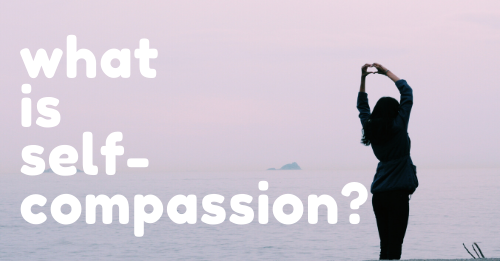To better understand what self-compassion is, it’s crucial to first explore why it matters. We’ve all felt the effects of negative self-talk, or the critiquing inner voice known as the anti-self. The anti-self, when it emerges, perpetuates a negative line of thinking called the “critical inner voice.”
The critical voice is comprised of negative thoughts and attitudes toward self and others, and it says things like, “You can’t trust anyone,” and “They don’t appreciate you.” To stand up to our inner critic, we need to adopt an attitude of self-compassion — an attitude scientifically proven to be highly beneficial to our overall mental health and well-being.
What Does “Self-Compassion” Mean?
Self-compassion is not to be confused with self- esteem or self-confidence. Self-compassion is all about accepting your mistakes and treating yourself as you would a loved one or friend. It means accepting your mistakes and not beating yourself up for making them.
In fact, a significant component of self-compassion is being mindful of who you really are and allowing yourself the freedom to be flawed. Other constituents of self-compassion are:
- Mindfulness
- Common humanity
- Self-kindness
Benefits of Self-Compassion
Self-compassion is the attitude we need to accept ourselves as we are despite the past and find peace and joy in the present. We all make questionable decisions at one point or another, but that doesn’t make us bad people. Being able to recognize our value and worth as unconditional is a primary benefit of practicing self-compassion.
Other advantages that come from practicing self-compassion include:
- An increase in overall well-being
- A boost in feelings of self-worth and resilience
- Higher emotional intelligence
- Greater overall satisfaction in life
- More social connections
- Decreased anxiety, depression and fear of failure
- Increased motivation to improve on mistakes
- Improved body image
How to Develop Self-Compassion
Self-compassion is a skill that can be learned alone or with the help of a therapist. Affectionate breathing exercises and loving-kindness meditation are two excellent strategies for developing compassion. Other ways to increase self-compassion follow:
- Comfort yourself with physical gestures: Try hugging yourself or putting your hand over your heart during stressful periods.
- Become aware of your self-talk: Take a couple of minutes each day to sit in silence and listen to your inner voice. Tune into your feelings and senses while you do this. Are your thoughts positive or negative? How do they make you feel?
- Practice saying affirmations: Positive affirmations like “I’m going to treat myself the way I’d treat my best friend” and “I’m going to be kind to myself” go a long way in building self-compassion.
- Consider how you’d treat a loved one: What if someone you cared about was going through the same situation you are now? What would you say to them, and what kindhearted advice would you give to them?
Start Your Journey to Self-Compassion With 7 Summit Pathways
A successful Recovery starts with self-compassion. At 7 Summit Pathways, we believe that a combination of holistic therapies, personalized care plans and familial support is the best way to help you develop self-compassion as you move forward into a life of Recovery.
Contact us to learn more about our intensive, individualized treatment approach, or schedule an appointment with one of our compassionate team members — we are what works.
